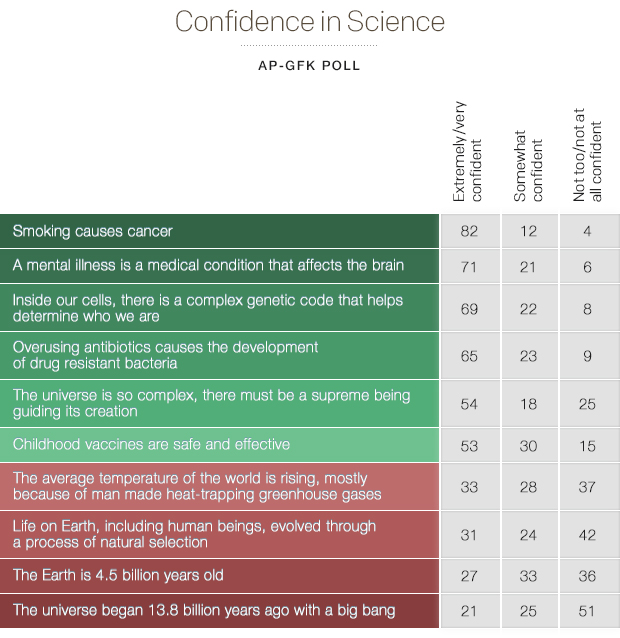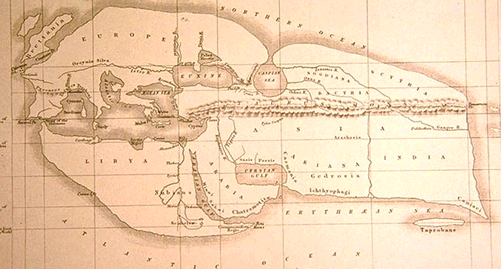Summary from GPT-3 at the end.
It is so hard for me to believe that the Republican party, relying on fear and intimidation, still holds the loyalty of any Christians in this nation.
So I wrote a post, a screed in FB arguing that voting for Republicans was equivalent to betrayal of our nation to authoritarians modeled after Nazis. To be fair, I know there are Republicans with a conscience, who have not betrayed their oath to the Constitution, and are not trying to overturn elections to stay in power. There are also many reasonable people who vote Republican, but it appears that they are few and far between, especially in Congress.
So let’s turn to Romans 13:1-7 and see what we have on offer. I respect the Scriptures and those who are dedicated to exposing them to the world, whether in evangelism or private devotion. But I steadfastly resist any notion that the Scriptures give us a right to rule over people. “The greatest among you will be the servant of all.”
Everyone must submit himself to the governing authorities, for there is no authority except that which is from God. The authorities that exist have been appointed by God. Consequently, whoever resists authority is opposing what God has set in place, and those who do so will bring judgment on themselves.
For rulers are not a terror to good conduct, but to bad. Do you want to be unafraid of the one in authority? Then do what is right, and you will have his approval. For he is God’s servant for your good. But if you do wrong, be afraid, for he does not carry the sword in vain. He is God’s servant, an agent of retribution to the wrongdoer.
Therefore it is necessary to submit to authority, not only to avoid punishment, but also as a matter of conscience. This is also why you pay taxes. For the authorities are God’s servants, who devote themselves to their work. Pay everyone what you owe him: taxes to whom taxes are due, revenue to whom revenue is due, respect to whom respect is due, honor to whom honor is due.
Here’s what I posted, and if you want to you can read the comments. Surely, I made the extreme point, and overstepped my boundaries. That was noted by the commenters. But as rant and a screed it functioned perfectly well.
Are you going to vote for the party that is fully supported by the American Nazis? Are you going to vote for the party that has on its side, the white nationalists, including the white christian nationalists who have no respect for anyone but their own “white” group, and don’t believe that brown and black citizens are really American citizens and should not be granted the same rights and freedoms as themselves. Do you also believe that for political expediency, it is permissible to lie and misrepresent the truth, to invent “facts” in order to prove your point? Do you believe that the 2020 election was “stolen” from the criminal ex president? Do you believe it’s OK to break the law to get your way? If all or any of these things are OK with you, then go ahead and vote Republican. The end of our Constitutional democracy is in your hands.
https://www.facebook.com/dougolena/posts/10100736645839128?comment_id=445929701020526
The comment I note is by Julie Ray, a representative of an Evangelical minority that can’t see the forest for the trees: “How about we all vote our conscience, and then trust our Loving God with the results. He is the One who sets up kings and brings them down.” And before you think I’m picking on just her, you should know that I’ve heard this same argument from dozens of my fellow citizens.
So, I responded the way I normally do with:
So God set up Hitler, Stalin, and Mao, etc.? Why was there any resistance to them by Christians if God did that? The argument from conscience is weak because our consciences are fragile and unreliable. Conscience is developed by training not necessarily a voice from heaven. And should people who have no conscience be allowed to vote, or rule? The problem with the wide variety of Christian Nationalisms is that citizens of the United States are not Christian by definition and intention. A nation can, like the European ones of the last millennium allow the definition to include Christian as part of citizenship, but then do you want to repeat those mistakes? And which version of Christian would you like to have be in charge of all of us? One that looks like the criminal Lauren Boebert, or one that looks like Mother Theresa? I know the one I would pick, but I think that question arises from an authoritarian instinct, and that, not one I would choose to be governed by.
Would you, to keep the law of the land, hand over the Jews to Hitler? Or, would you round up everyone who disagrees with you and restrict their movements to prevent them from doing anything you don’t approve? That seems to be the modus of the Republican party. Use the moral card to treat people immorally.
Citizenship in the United States has nothing to do with religion, and encompasses all religions [and none at all], at least in theory. But would you prefer a theocracy with humans holding the reigns? I certainly wouldn’t. Let Jesus come back and do all the sorting out, but for God’s sake stop leaving the decision up to God, when God has given the government to people. Israel as a model nation for theocracy is a historical example not to follow, and there is neither biblical justification to use it or rational agreement on how it should operate. Remember that the Puritans in Boston hung a few Quakers for evangelizing before the British edict on tolerance forbad them doing so. But it is OK to hang Christian people when the law says you can?
Responding to the “God sets up Kings” thing. Thank God we have no kings in the USA. And whatever applied to kings in the Scriptures, does not apply to us in any way. Democracy, which I know for your Republican allies in Washington and many states, is not a popular mode of government. They are interested in achieving and keeping power at any cost. My conscience says it is a really bad idea to vote them in.
Do you have any idea what the Republicans actually believe besides hatred for LGBTQ+, blacks, asians, and any other different sort of person? Besides harping on the bad state of the economy, then running the country into the ground financially and complaining that the democrats are not cleaning up their mess fast enough, do you have any idea what their fiscal policies would be besides defunding Social Security, Medicare, Medicaid, defunding public schools, allowing our infrastructure to crumble around us, giving tax breaks to the 1%, and trying to take away the rights of citizen from anyone who disagrees with them? Can you still defend the “conscience” argument when the right to vote, enshrined in the Constitution, is being purposely curtailed by any means possible in Republican controlled states?
Do you still think conscience is enough when the rights of bodily autonomy for women are being seriously curtailed by law? Do you, as a woman, think it’s OK to take away the choices of women about how they live their lives, just because some moralist says they shouldn’t be able to decide (according to their conscience) what they should do?
I would like to think that some of my arguments here, supported by reason and evidence, were important to people like you, but I have lived in this nation for long enough to know that my beliefs about reality are of little consequence for those who have been deluded into thinking that one should vote republican just because they have always voted republican, because Christians are republican, and republicans are Christian?
?
So, let’s also look at the “tax” thing. The Scripture says we should pay them. OK, I agree. But what is it with Republicans giving tax breaks to the wealthy? Why shouldn’t they pay taxes like everybody else? Well they should, if the Scriptures are correct here. And how would these people have been able to become so wealthy without all the support of infrastructure, both legal and physical? They wouldn’t. But they prefer (al la Musk) not to pay taxes, and think it is bad for the economy. But how can this be sustained? It can’t and it shouldn’t.
But, all the single issue (“pro” life) voters don’t give one single crap about adult women even though those women are alive. In fact, they are using the very system that women fought for to curtail the rights of women. This is another example of rank hypocrisy by authoritarians who could care less about the people they are supposed to govern. And nobody is suggesting that abortion is a desirable decision, except the republicans that caricature pro-choicers. What’s at stake here is nothing less than personal autonomy, that of women, and dare I say it, eventually all of us.
It is hard and expensive for the government to collect taxes from the wealthy, because the law has been used to avoid that consequence for decades, perhaps in the modern era since Reagan when the average citizen’s wealth flatlined, and the wealthy rocketed into the stratosphere (literally), not to mention government policies that resisted black and brown people from accruing wealth, even owning a house.
Let me laugh a little bit. You remember Oz, not the great and powerful fraud of the Wizard of Oz but well, maybe the same one. Mehmet Oz has spent his adult life fleecing unsuspecting consumers. And the Republican party thinks it’s a good idea to offer him to Pennsylvania voters for the Senate of the United States? Well, at this point Oz the scammer does represent a sizable portion of the republicans in the nation, ones that have been deluded into thinking fraud is OK if it makes me more wealthy. These may not be the same people as the christian nationalists, but they will achieve the same end. Fraudsters running the legal rackets.
What is surprising to me is not the appeal to the Scriptures, but to appeal to the Scriptures from a little know-nothing bubble, with no interpretative maturity or consciousness of reality, is just as absurd as thinking that fraud will make me rich. I guess that’s why the fraudsters and white christian nationalists make appropriate bedfellows. Frankly, it makes me ill. No wonder I’m depressed.
GPT-3 Summary: This text argues that the Republican party is relying on fear and intimidation to maintain its loyalty from Christians in the nation, and is using the Bible’s Romans 13:1-7 as justification for their authoritarian policies. It then questions the “conscience” argument, suggesting that it is unreliable and can be used to justify immoral decisions. It also questions the Republican party’s policies, such as their desire to defund Social Security and Medicare, restrict the rights of women, and give tax breaks to the wealthy. It argues that the Republican party is driven by a desire to maintain power and is willing to break the law to do so. Finally, it states that appealing to the Bible from a know-nothing bubble is absurd, and that fraudsters and white christian nationalists make appropriate bedfellows.




